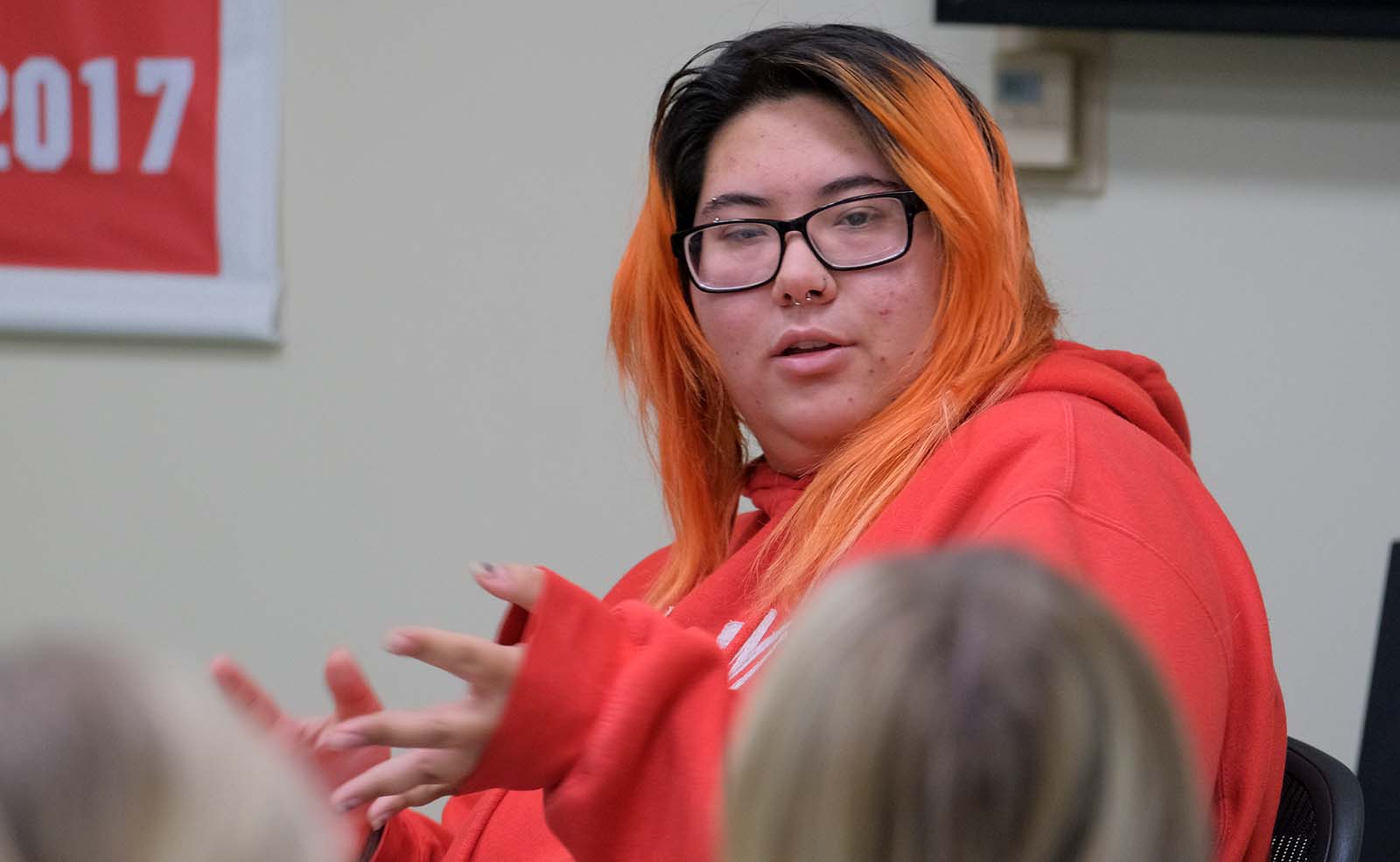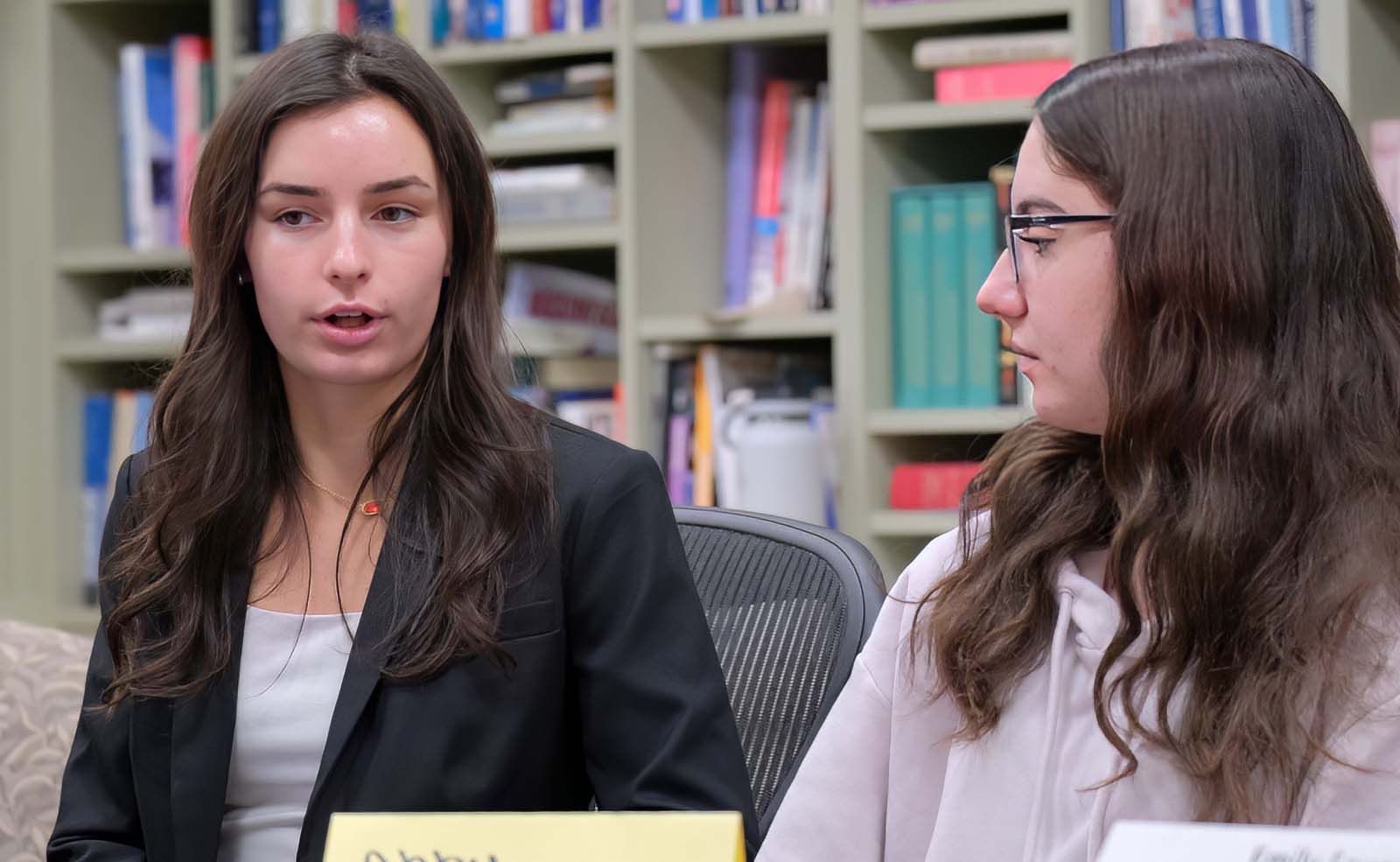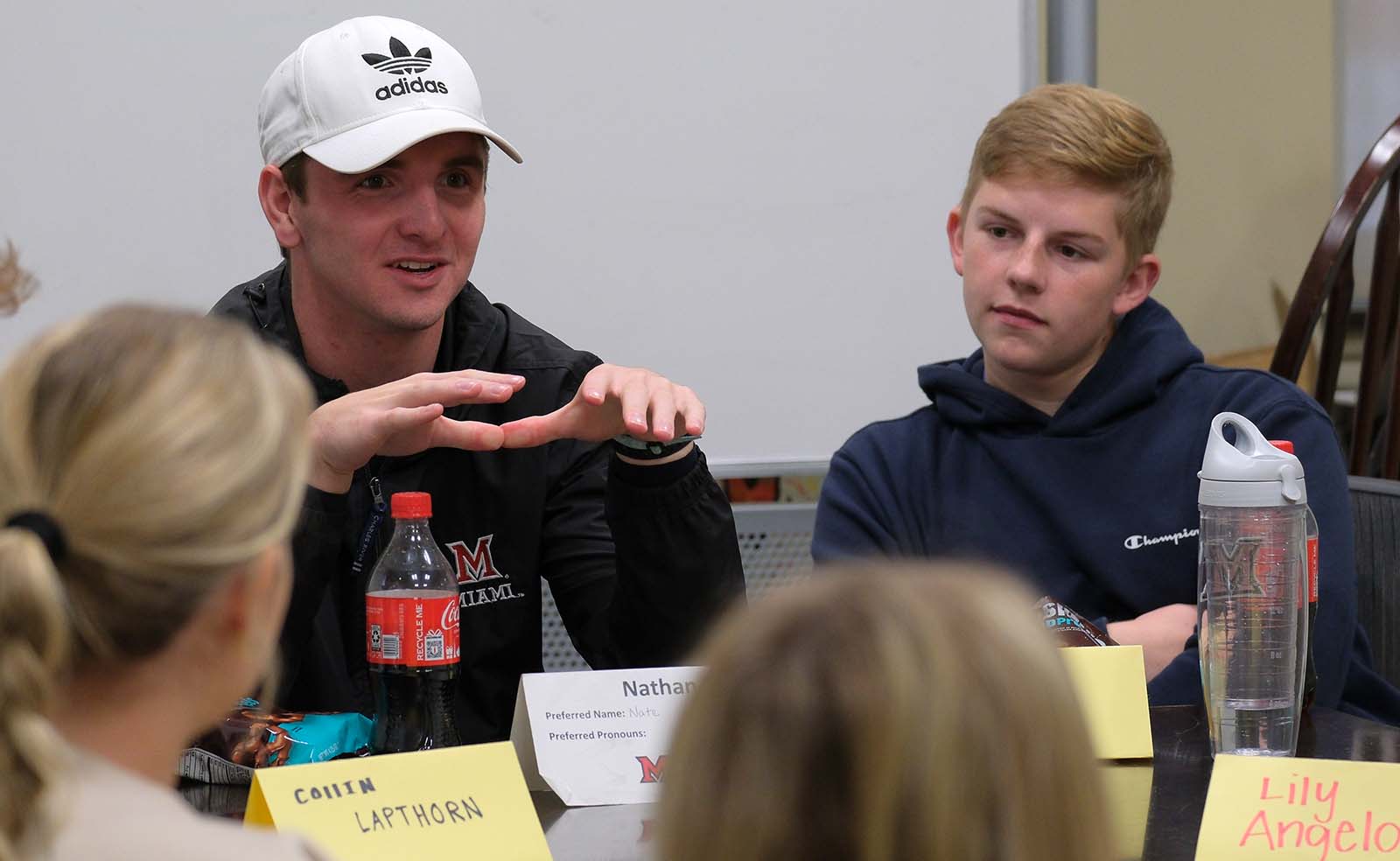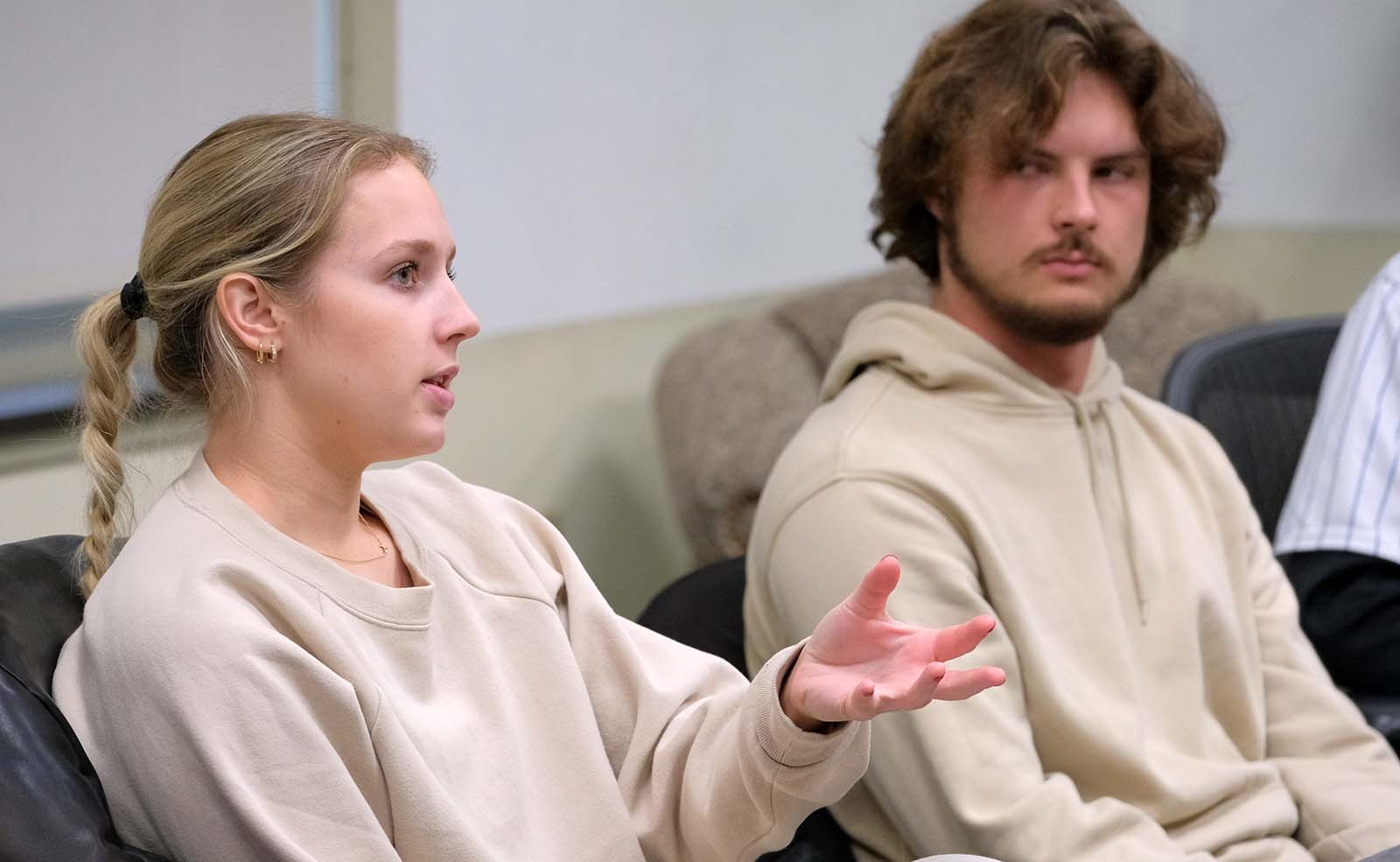Kickglass Dialogues Across Difference launches for Farmer School of Business students
A new program works to help students learn to talk through differences between themselves and others
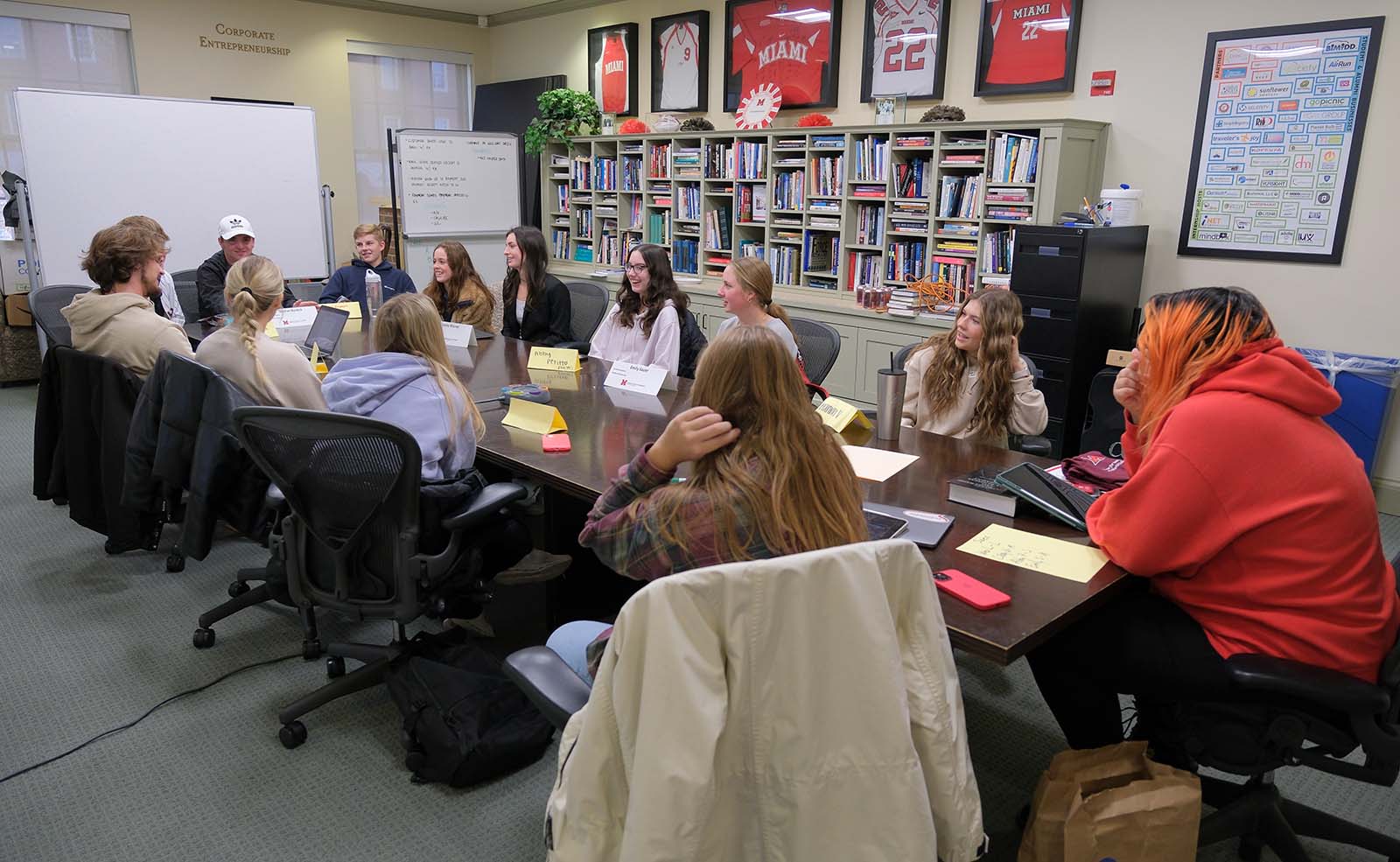
Kickglass Dialogues Across Difference launches for Farmer School of Business students
When students come to college, they often enter a more-diverse living and learning environment than they’ve ever faced before. That can lead to challenges, conflicts, and misunderstandings that could be avoided if the students felt comfortable talking to one another.
That’s where KickGlass Dialogues Across Difference comes in. “The idea, which is becoming more and more important, is to teach people how to relate to each other and learn from each other across all types of difference,” Founding Director of the Center for KickGlass Change and Farmer School marketing professor Gillian Oakenfull said. “Not to debate, not to be divisive, but to learn how you understand difference, accept difference, transcend difference, and learn from each other. How do we move from our comfort zone to learning zone purposely?”
The concept was first developed at the University of Michigan, and brought to Miami by Tarah Trueblood, director of the university’s Center for American and World Cultures.
“I participated in Intergroup Dialogues within a faculty learning community, and it was an incredibly powerful experience. I realized that all of our students, faculty and staff would benefit from what I had experienced” she said.
Oakenfull incorporated Dialogues Across Difference into one of her capstone marketing classes to see what would happen. “My students take this for seven weeks for one of their classes within the course. And every semester, the experience gets overwhelmingly positive feedback. These are not students who select into it. These are students who are taking a marketing course and they're doing it whether they like it or not,” she said. “The other feedback that I get is, ‘I wish I had experienced this when I first came to Miami.’”
So this semester, Oakenfull developed the program as KickGlass Dialogues Across Difference and offered it as a Cultural Leadership Skills credential from the Center for KickGlass Change. She pitched the program to four First-Year Integrated Core classes to see if she could put together a cohort of first-year students. “We had 12 students who went through it, who volunteered to spend two hours every Wednesday for seven weeks doing intergroup dialogue with two trained student co-facilitators,” she said. “There were many others who actually were keen to do it, but just it didn't fit in their schedule.”
Accountancy student Abby Petitto was one of those students who took part this fall. “I feel like I gained an education in certain areas that I was uninformed about prior to taking part in the program. My experience every week was extremely positive and I think I can credit that to the student leaders who were in charge of my session,” she said. “They ensured an open discussion for all members to share their own beliefs and experiences without feeling a sense of judgment.”
“I was expecting to discuss more things related to cultural diversity, which we did, but we ended up talking more about personal identity and how others identify,” accountancy student Nate Burdick said. “We discussed a lot about microaggressions and how we can be doing these microaggressions without even realizing it. We discussed how to approach these situations and how to apologize if we did end up making a microaggression.”
“Dr. Oakenfull suggested that if the course seemed like it would be out of my comfort zone, that would be all the more reason to sign up. This resonated with me, and I decided to try something new,” supply chain major Emily Sauer said. “The course challenged me to reflect on and share my experiences, learn different perspectives, and develop a common respect and trust among my peers.”
“From this experience, I will be taking away a new perspective on how I approach situations in my academics, work environment, and everyday life. I have a newfound confidence in addressing topics and finding ways to relate and share empathy with others,” Petitto said. “Going through my life I now begin to notice things I wouldn't have found important prior to going through this program.”
“I learned that we should always be aware of what we are saying. But I also realized that it's all about intent when you make a statement,” Burdick said.
“The biggest takeaway for me from this course is recognizing the difference between intent and impact. Although I may have good intentions in saying or doing something, the impact could potentially be taken in a harmful or rude way that I cannot control,” Sauer said.
Each student who completed the program received a digital badge from the Center for KickGlass Change which they can share on their resume and social media as evidence of this important work to prospective employers. This digital badge was in addition to the CQ FOUNDATIONS credential that they received from work imbedded into their first-year coursework, Oakenfull said the next challenge for the program is scaling up. “I think one of the big problems with a lot of diversity, equity, and inclusion efforts is they're only hitting a small group of people. And if it’s voluntary, maybe the people who really need it aren't the ones who are exposed to it,” she said. “My dream would be that every first-year student has this experience.”
“Increasing the number of students who enter the program would help develop the student leaders who are needed to facilitate the sessions, which would in turn allow more students to take part and earn credentials, which would be a valuable tool for students seeking their first job,” Oakenfull said.
And for those students who have already completed KickGlass Dialogues Across Change, next year the Center for KickGlass Change will expand its Cultural Leadership credentials with unique offerings such as Cognitive Diversity and Whole-brain thinking, Diversity and Social Well-being, Walk a Mile in Their Shoes with VR, and Learning the Ropes to Effective Teamwork for students, faculty, and staff.
In a recent survey of key workplace skills by the Committee for Economic Development, CEOs rated (a) teamwork/ collaboration and (b) the ability to work with others of diverse backgrounds among the top three most essential employee competencies. “Cultural leadership aren't soft skills, they are hard in that they can be measured and developed,” she said. “Most employers assume they're going to have to train people once they get them. What if we have students who can enter the workplace with these skills and can signal that to employers? That's the goal.”
